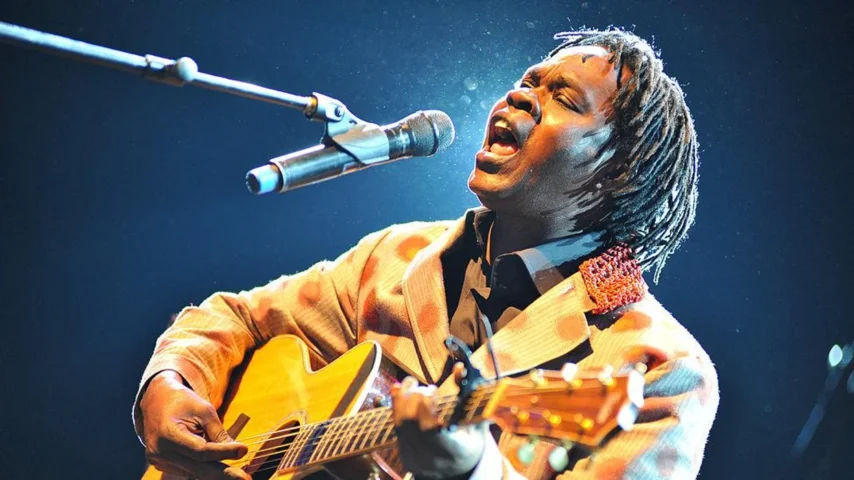Senegalese star Baaba Maal Named UN Goodwill Ambassador
BY SIDONIE MONNET

The African entertainment world has just been honored again with the nomination of Senegalese composer, arranger, and singer Baaba Maal as a goodwill ambassador for the U.N. Convention to Combat Desertification. The announcement was made yesterday, Monday, in London.
The fight against desertification is nothing new to Maal. His commitment to several development challenges in Africa dates back to 2003 when he started working with various bodies that are part of the United Nations. His trust, NANN–K, according to its website, focuses on:
- Ameliorating the effects of desertification in the Sahel Region of Africa primarily focussing on (but not limited to) Senegal;
- Promoting the sustainable use of natural resources;
- Relieving poverty and improving the conditions of life in socially and economically disadvantaged communities; and
- Promoting sustainable means of achieving economic growth and regeneration.
- Advancing education in subjects relating to desertification and more broadly sustainable development and the protection, enhancement and rehabilitation of the environment.
ABC News quotes the star as saying in a recent interview with the Associated Press that he believes in empowering the youth and women: “We are tackling climate change impact, but also fighting desertification on the African continent, especially in my region where we are just not far away from the desert and we see it coming to us.” He goes on to say:
“And it had an impact because people who don’t get more opportunities to do agriculture, fishing and many more will have to run away from their places, go to the big cities where nothing is planned for them there, and then later on, some of the young ones will just take the boats to go to Spain or some of these places or just try to cross the desert and it’s really dangerous. We did lose a lot of lives.”
The singer also shows skills of an educator: “Our role is first to give news about what’s going on, because sometimes the local people, they don’t know what’s happening to them is the impact of climate change. They don’t know how to stand up against that. But at the same time, when they know about it, they will say what to do.”

